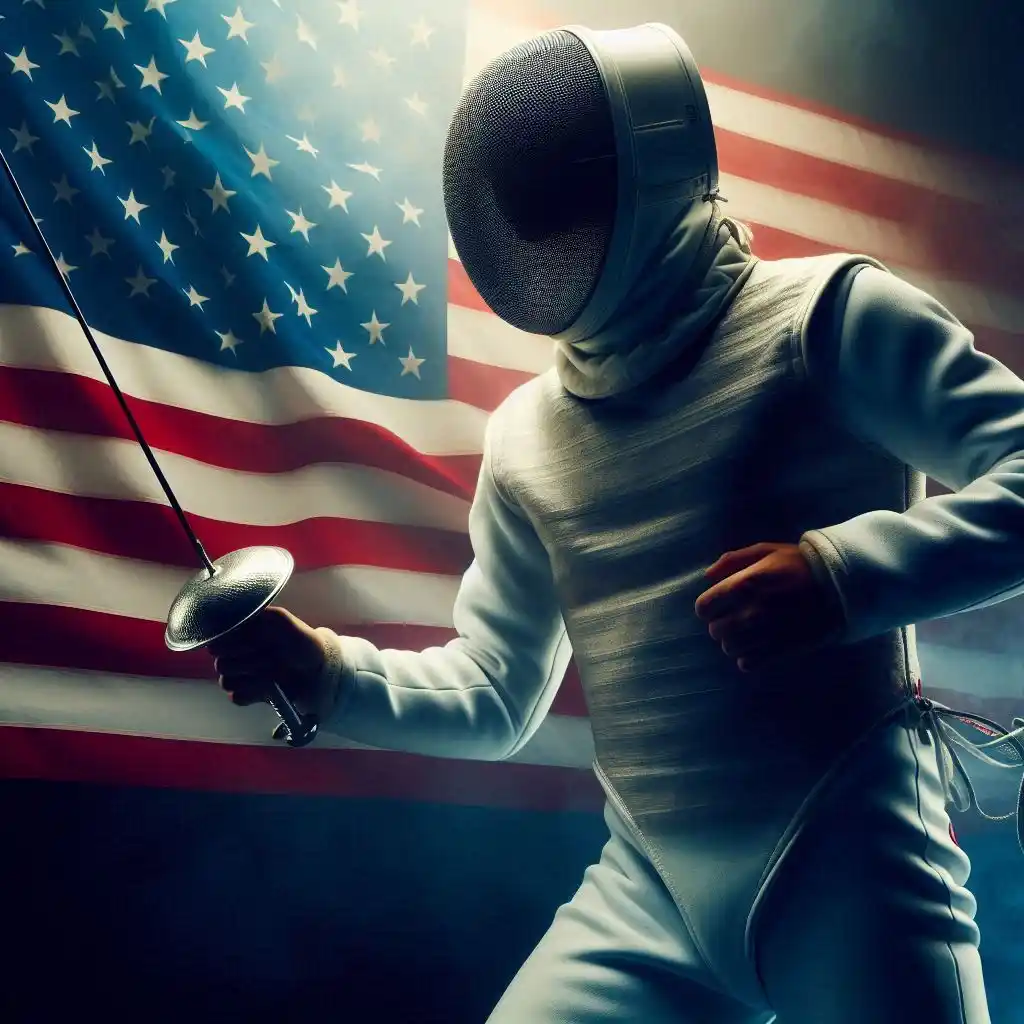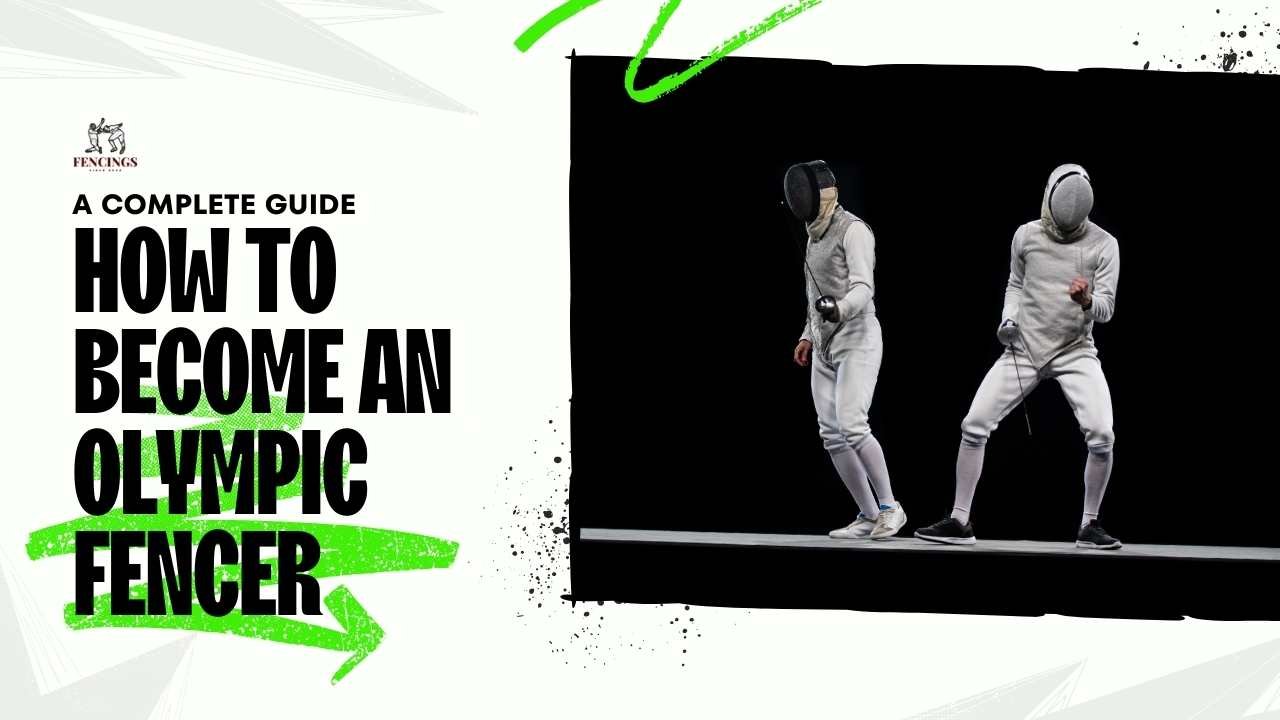Fencing, one of the authentic sports of the modern Olympic Games, is often described as “physical chess.” It captivates athletes and audiences with its combination of method, agility, and subject. For aspiring fencers, competing at the Olympic level represents achievement. But how does one transform from a newbie wielding a weapon to an elite athlete representing the United States?
How to become an Olympic fencer is a query that ignites ardour in many young athletes. Fencing has been a part of the Olympic Games since the inaugural modern-day Olympics in 1896, symbolizing honor, skill, and the timeless spirit of competition.
This blog will take you through the steps required no sign up for the ranks of Olympic fencers. From knowledge of the basics to navigating the course to qualification, we’ll provide insights and strategic steering tailor-made to aspiring athletes.
The Olympic Fencing Landscape: By the Numbers
Before we dive deep, let’s look at some eye-opening statistics about Olympic fencing:
- Only 0.01% of fencers ever reach Olympic-level competition
- Average training starts between ages 8-10
- Typical Olympic fencers have been training for 12-15 years before competing
- Approximately 3-5 athletes per country qualify for Olympic fencing events
The Path to Olympic Fencing Dreams
Imagine yourself on the Olympic stage, sword in hand, representing your country in one of humanity’s most elegant and strategic sports. Becoming an Olympic fencer isn’t just a dream—a journey of passion, dedication, and relentless pursuit of excellence. This guide will walk you through the intricate world of how to become an Olympic fencer, breaking down every crucial step of this extraordinary path.
Understanding the Basics: What Does It Take to Become an Olympic Fencer?

1. Start Early, Train Smart
To become an Olympic fencer, you must understand that time is your greatest ally. Most successful Olympic fencers start their journey between ages 8 and 12, developing muscle memory, technique, and passion from a young age. While it’s not impossible to start later, early exposure dramatically increases your chances.
2. Choose Your Weapon: Foil, Épée, or Sabre?
Olympic fencing offers three distinct weapons, each with its unique characteristics:
- Foil: Lightweight, focuses on torso hits
- Épée: Heaviest weapon, the entire body is a target
- Sabre: Fastest weapon, allows both cutting and thrusting motions
Selecting the right weapon is crucial to becoming an Olympic fencer.
3. Technical Training: More Than Just Sword Skills
How to become an Olympic fencer involves mastering:
- Precise footwork
- Lightning-fast reflexes
- Strategic thinking
- Physical conditioning
- Mental resilience
The Training Roadmap: From Local Club to Olympic Arena
Early Stage (Ages 8-14)
- Join local fencing clubs
- Participate in youth competitions
- Develop fundamental techniques
- Build physical fitness
- Learn competitive mindset
Intermediate Stage (Ages 15-18)
- Compete in regional tournaments
- Attend specialized fencing camps
- Work with professional coaches
- Develop advanced techniques
- Build national ranking
Advanced Stage (Ages 19-25)
- Compete in national championships
- Aim for national team selection
- Intense daily training (4-6 hours)
- Professional nutrition and conditioning
- Mental performance coaching
Qualification Criteria: The Olympic Path
To become an Olympic fencer, you must:
- Be a citizen of the country you’re representing
- Achieve top rankings in national competitions
- Meet International Fencing Federation (FIE) qualification standards
- Be selected by your national Olympic committee
Qualification Statistics
- Approximately 36 fencers per weapon category qualify for the Olympics
- Each country typically sends 3-4 athletes per weapon
- Qualification involves complex point-based ranking systems
👉Popular Post: Why Do Fencers Scream? Deep Dive into its Purpose & Impact
Steps to Becoming an Olympic Fencer
How to end up an Olympic fencer is a question that many aspiring athletes ask. The adventure is hard but profitable. Here’s a roadmap to manual you:
1. Start Young
Many successful Olympic fencers begin their schooling in youth. Starting younger allows you to develop crucial skills, coordination, and muscle reminiscence. If you’re a young athlete or a figure of 1, recall joining a fencing club that offers beginner instructions.
2. Find a Local Fencing Club
Joining a reputable fencing membership is vital. Look for fencing equipment with experienced coaches and supportive surroundings. These clubs often offer equipment and opportunities to compete, which might be crucial to your development.
3. Invest in Equipment
Fencing requires specific tools to ensure protection and overall performance. Here’s a listing of important equipment:
- Mask: Protects your face and head.
- Jacket: Worn to protect your torso.
- Glove: Essential for grip and protection.
- Weapon: Choose based on the fencing you want to pursue (foil, épée, or sabre).
4. Regular Training
Consistent exercise is prime to improvement. Training sessions should consist of:
- Footwork drills: Essential for agility and movement.
- Technique practice: Focus on your shape and execution of moves.
- Sparring: Allows you to use what you have discovered against an opponent.
5. Compete in Tournaments
Competing is a quality approach that benefits experience and enhances your abilities. Start with neighborhood tournaments and, step by step, work your way as much as countrywide competitions. Each bout will teach you valuable classes about approach and mental sturdiness.
6. Seek Coaching and Mentorship
Having a knowledgeable coach is beneficial. They can offer personalized remarks, assist you in refining your strategies, and guide you through the intellectual factors of opposition. A mentor can elevate your education and keep you stimulated.
7. Physical Conditioning
Fencing requires physical health, such as strength, flexibility, and staying power. Incorporate a fitness ordinary that includes:
- Cardiovascular sporting events: Such as running or swimming.
- Strength education: Focus on the center, legs, and upper frame.
- Flexibility training: Stretching and yoga can enhance your range of movement.
8. Mental Preparation
Fencing is as a good deal an intellectual game as it’s miles physical. Developing intellectual resilience is essential. Techniques, visualization, meditation, and advantageous affirmations let you stay calm and centered during competitions.
9. The Road to Competition
Olympic qualification requires years of dedication and opposition.
Pathway to the Olympics
Aspiring fencers must progress from local competitions to regional and country-wide qualifiers. Success at the domestic circuit opens opportunities to compete worldwide in World Cups and Grand Prix events, which is essential for earning ranking points.
Excel in Competitions
Approach every competition as a possibility to study. Analyze your performance, discover styles for your opponents, and refine your strategies.
10. The Importance of Nutrition and Recovery
Fencing pushes your frame to its limits. Proper nutrition and relaxation are essential for sustained overall performance.
Tailoring Your Diet
Fuel your schooling with a balanced weight loss plan wealthy in carbohydrates, protein, and wholesome fat. Hydration is equally critical—dehydration drastically affects response time and overall performance.
Rest and Recovery
Adequate sleep and healing periods prevent accidents and reduce burnout. Incorporating methods, including stretching, massages, and even meditation, can enhance healing performance.
11. Building a Personal Brand and Network
Today’s fencers benefit from cultivating sturdy non-public manufacturers to connect to sponsors and interact with the community.
Leveraging Social Media
Platforms like Instagram and YouTube permit athletes to exhibit their trips and encourage others. Share insights into your training workouts, victories, and moments of vulnerability to build authenticity.
Networking with Other Athletes
Collaborating with fellow athletes and participating in community occasions fosters support and opens the door to potential partnerships or sponsorships.
Mental Preparation: The Invisible Weapon
How to become an Olympic fencer isn’t just physical—it’s a mental marathon. Top fencers develop:
- Extreme focus
- Quick decision-making skills
- Emotional control
- Competitive resilience
Training Your Mind
- Practice meditation
- Use visualization techniques
- Work with sports psychologists
- Learn from defeat
- Maintain unwavering self-belief
Financial Considerations
Olympic fencing isn’t cheap. Estimated annual costs:
- Equipment: $1,500 – $3,000
- Coaching: $2,000 – $5,000
- Travel and Competition: $3,000 – $10,000
- Total annual investment: $6,500 – $18,000
Common Challenges and How to Overcome Them
Challenge 1: Late Start
Many wonder, “Can I become an Olympic fencer if I start late?”
- While challenging, it’s not impossible
- Requires extraordinary dedication
- Focus on accelerated learning techniques
Challenge 2: Physical Limitations
- Develop personalized training programs
- Work with specialized coaches
- Focus on your unique strengths
Frequently Asked Questions
Q1: How long does it take to become an Olympic fencer?
A: Typically 10-15 years of dedicated training, starting from a young age.
Q2: What’s the best age to start fencing?
A: Between 8-12 years old, but passionate learners can start at various ages.
Q3: How expensive is competitive fencing?
A: Annual costs range from $6,500 to $18,000, including equipment, coaching, and competition expenses.
Q4: Do I need to be naturally athletic?
A: While helpful, technique, dedication, and proper training matter more than natural athleticism.
Q5: What are my chances of becoming an Olympic fencer?
A: Less than 0.01%, but with extraordinary dedication, anything is possible.
Statistics on Olympic Fencing
- Average Age: According to the International Fencing Federation, the average age of Olympic fencers is around 27.
- Training Duration: Studies show that fencers who have been educated for at least 10-15 years are likely to reach the Olympic degree.
- Global Participation: A current survey indicated that the number of registered fencers worldwide has grown by over 20% over the past decade, reflecting the game’s growing popularity.
Conclusion: Your Fencing Journey Begins Now
How to become an Olympic fencer is a multifaceted pursuit that blends physical schooling, intellectual energy, strategic acumen, and relentless passion. It’s an adventure marked by early mornings, grueling workout routines, intense competitions, and the unwavering notion of your abilities. Remember, every Olympic fencer started out in which you’re now—with a dream and the determination to realize it.
As you lace up your fencing footwear and thrust your blade towards your goals, embody each step of the adventure. Seek know-how, construct resilience, and foster a love for the game. The route to the Olympics is long and hard, but with determination and the right mindset, it’s far within your reach.
Final Words of Wisdom
- Start now
- Stay committed
- Embrace every challenge
- Believe in your potential
Remember, every Olympic champion was once a beginner who refused to give up.

